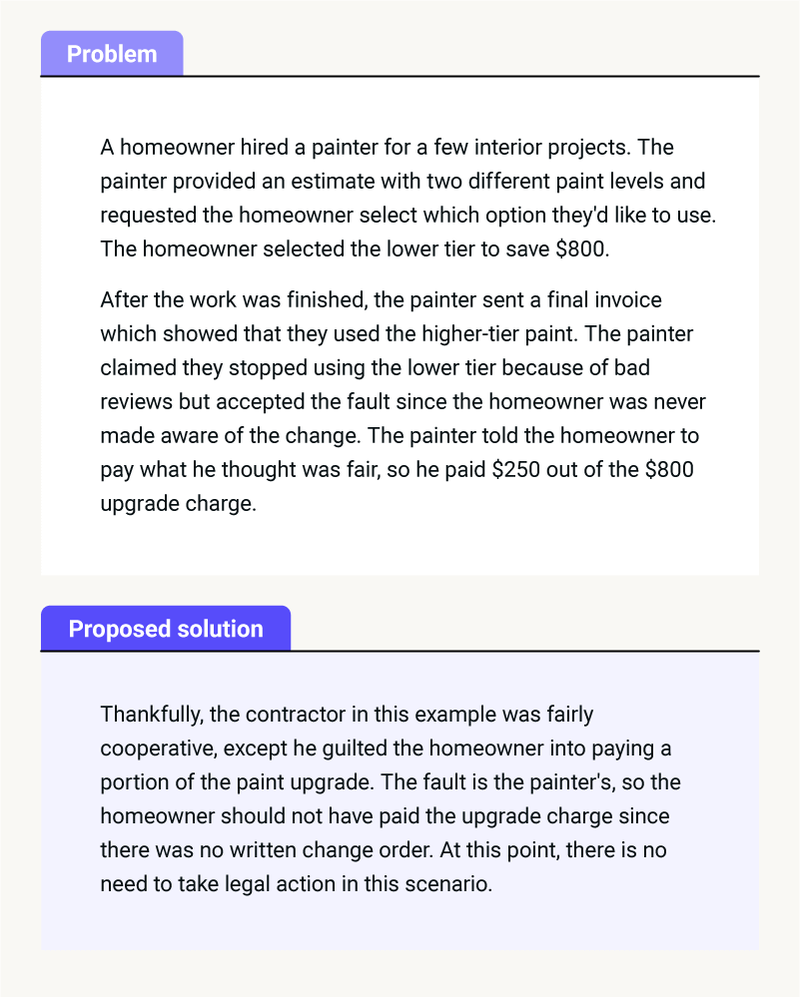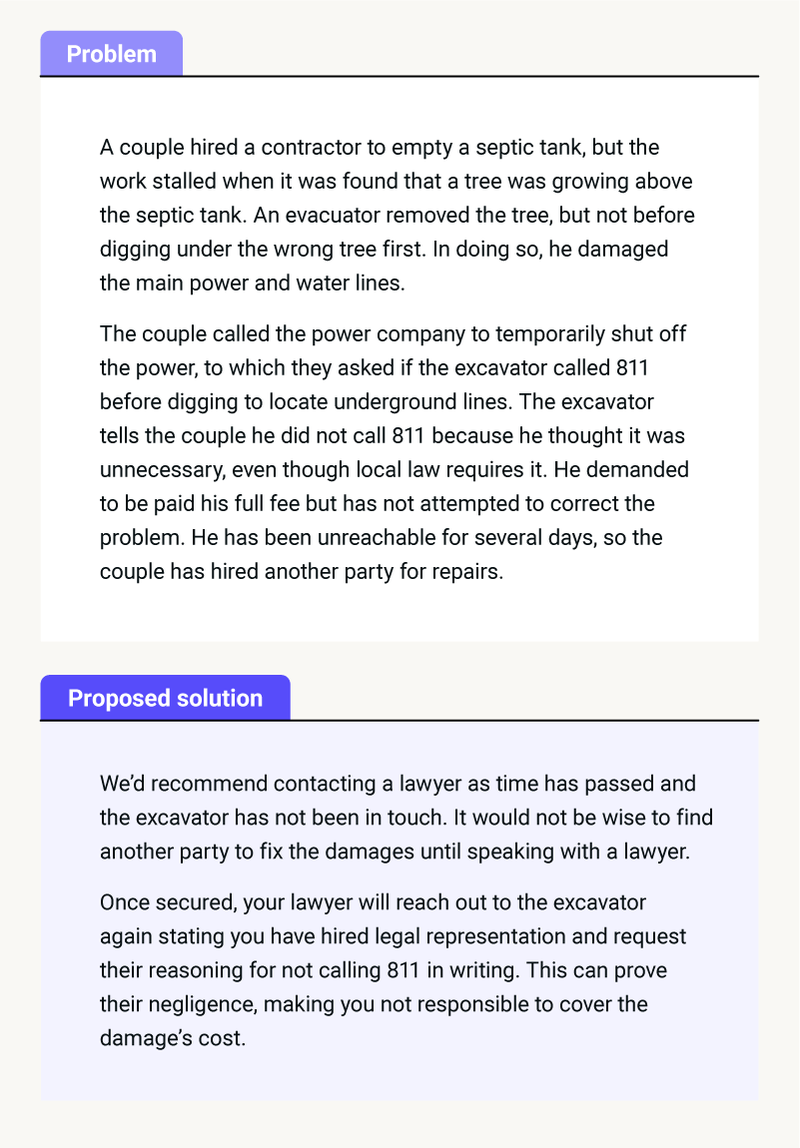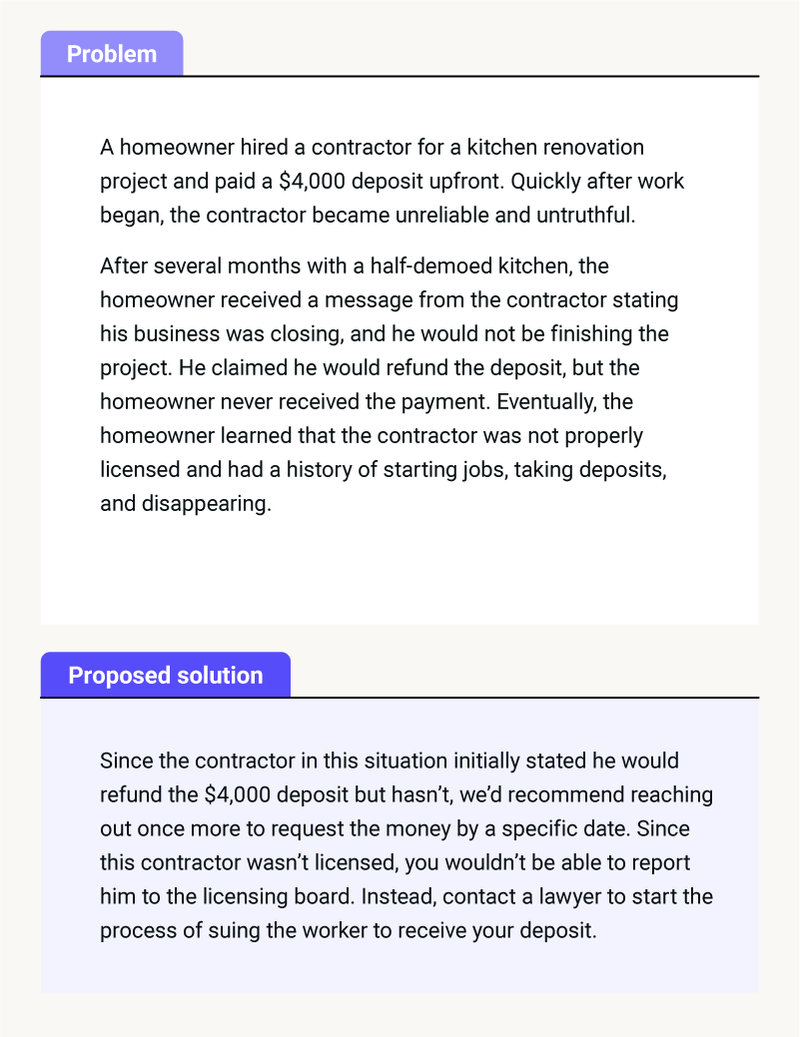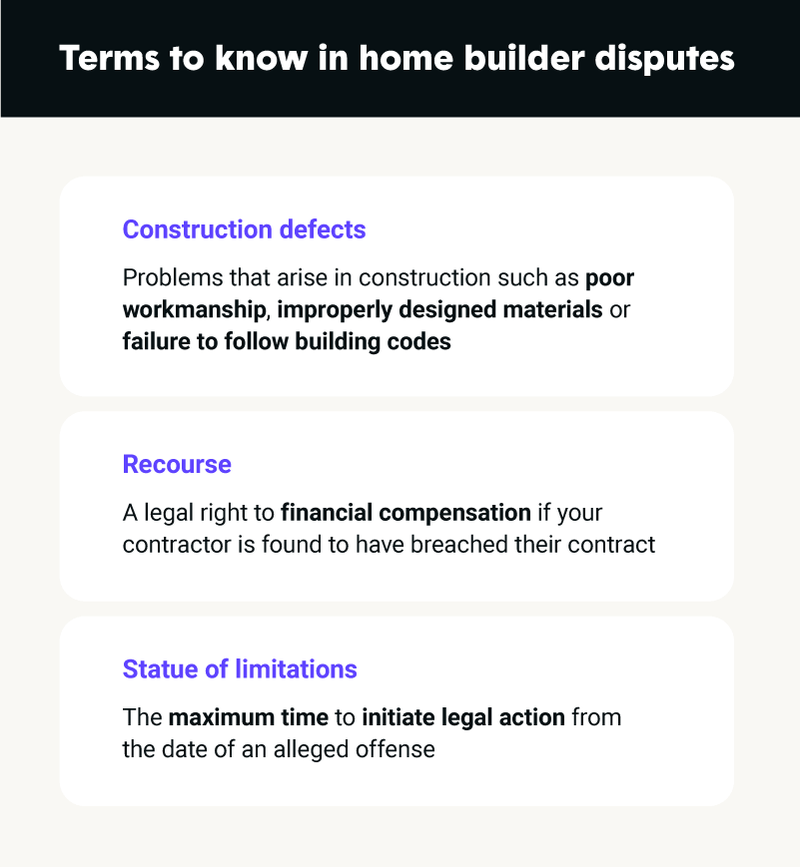1. Document issues
Before taking action after finding flaws in your contractor’s work, you must document all the issues you have. If you’re noticing issues during a walk-through with your contractor, you can discuss the issues verbally but be sure to follow up with written communication.
A written log of issues and communication, along with photo proof of your contractor’s unsatisfactory work, will be necessary should you need to pursue legal action.

Read the full thread on the paint swapping mishap.
2. Review the contract
Before your builder began their work, you likely signed a contract with them that laid out the scope of work, anticipated completion date and costs. Moving forward without a written contract can make things difficult if construction defects or contractor issues arise. Verbal contracts are enforceable but difficult to prove.
Reread your contract to review what your builder agreed to do within the timeline and budget. Carefully check the exclusions section, as it may include some issues that the contractor cannot be held liable for, like delays or appliance malfunctions.
It’s not always the case that you uncover construction defects mid-project. You may not have discovered issues until after the contractor completes the project and payments have been made. Check to see if your contract explains how long the builder is liable for their work. If it’s not disclosed, consult your state’s statute of limitations — the maximum time to initiate legal action against a home builder, starting when the contract was signed.

Read the full thread on the out of touch contractor.
3. Hire an inspector
If you’re building a new custom house, you will likely hire a home inspector before closing. However, this isn’t the only time when an inspection might be helpful.
If you’re questioning your contractor’s quality, you can hire an inspector to review the work mid-project. A home inspector will check the project for structural safety and can determine whether it meets building codes.
You could hire a backup contractor for a second opinion but be weary of doing so, as their goal may be to take over your project.

Read the full thread the disappearing kitchen remodeler.
4. Meet with the contractor
The quickest way to solve construction disputes is to come to an agreement with your builder. If you’ve received third-party confirmation of potential construction defects, the next step is to bring the issues and proof directly to their attention politely. You can do this verbally, but follow up via email or text to confirm.
It’s important to be respectful when meeting with your contractor about the issues with their work. Your builder likely takes pride in their work, so hearing that a customer is unsatisfied could either lead to a productive conversation or an uncooperative builder.
If the conversation goes well, allow them time to correct their mistakes. Document the agreed plan of action and timeline for these corrections. Now is the time to be persistent with receiving updates and dropping by unannounced to check on progress. If you reach the expected completion date with little to no improvement and have not set an updated timeline with your contractor, the next step may be to pursue legal action.
If your builder reacts poorly or disrespectfully, you may want to consider firing them to avoid more significant problems down the road. Legal action may be necessary if you’ve paid for work up front.

Read the full thread on firing a friend/contractor.
5. Find a lawyer to file a complaint
If there’s a need to escalate the issue, obtaining legal counsel is the next step. The lawyer you choose should have experience working with real estate and construction.
After reviewing your contract and log of issues and proof, filing an official complaint will likely be the first step your lawyer recommends. You can report your builder to your state’s licensing boards, the Better Business Bureau (BBB) or the Federal Trade Commission (FTC) for further investigation.
If the reports still don’t persuade your contractor to remedy the issue, your lawyer may advise you to pursue a class action lawsuit against your home builder for financial compensation.

Read the full thread on the contractor who filed to do the job well.
6. Get compensated
Depending on the situation, you might have different options for receiving compensation to fix or finish the work you originally planned.
If, after talking with your lawyer, it’s clear that your builder has breached the contract, then taking them to court may yield the best results financially. The court could order your contractor to finish or correct the work or compensate you for your losses.
Otherwise, you could file a claim against your contractor’s insurance. However, a contractor’s general liability insurance likely won’t cover faulty work claims unless someone is injured from the unfulfilled contract. If their policy includes contractors errors and omissions coverage, claims based on mistakes, negligence and more may be covered.
If your contractor isn’t insured, you can also lean into your own homeowners insurance policy. It’s important to upgrade your policy before construction begins to include builders risk insurance, which covers damages to a house’s structure and building materials, supplies and onsite equipment. Even with this coverage, your policy will not cover poor work quality.










